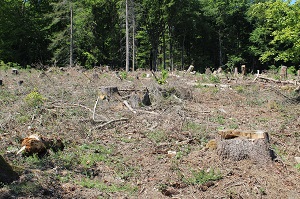![]() Resource Mismanagement is a news and information topic monitored and covered by: Prepper Watch – Survival
Resource Mismanagement is a news and information topic monitored and covered by: Prepper Watch – Survival
Introduction to Resource Mismanagement
In the world of prepping, resources are more than just supplies—they are your lifeline. Whether it’s food, water, fuel, medicine, or materials, mismanaging what you have can turn a survivable situation into a catastrophe. Resource mismanagement refers to the inefficient or careless use of critical supplies, leading to premature shortages, waste, and reduced chances of long-term survival. Preppers understand that survival isn’t just about what you stockpile—it’s about how wisely you use it.
This blog dives deep into how a prepper can prepare against resource mismanagement, develop better systems, and build skills that minimize waste and ensure sustainability. It’s not just about preparing more—it’s about preparing smarter.
Understanding the Threat of Resource Mismanagement
Most people assume that stockpiling is the answer to scarcity. But even the most well-stocked homestead or bug-out location is vulnerable to poor planning, overuse, or unanticipated needs. Examples of resource mismanagement include:
- Consuming food past its prime due to poor rotation.
- Letting water stores grow stagnant or contaminated.
- Using power inefficiently and running out of fuel prematurely.
- Not tracking medical inventory and letting items expire.
- Improper tool or machinery maintenance leading to breakdowns.
In short-term crises, these issues are inconvenient. In long-term survival scenarios, they can be fatal.
Inventory Management as a Survival Skill
A prepared mind is better than a full pantry.
Preppers should treat resource management like a job. That starts with effective inventory management, including:
- Detailed records: Maintain a digital or physical log of all stored resources, including quantities, expiration dates, and usage rates.
- Labeling systems: Use color coding or barcodes to categorize essentials like perishables, medical supplies, and fuel.
- Rotation discipline: Apply the FIFO principle (First In, First Out), especially with food, water, and medicine.
- Audit schedules: Monthly or quarterly checks help catch problems before they become crises.
Even in a bug-out scenario, maintaining a scaled-down version of this system in your backpack or shelter is essential.
Training the Mindset for Frugality and Efficiency
Prepping isn’t just about gear—it’s about mindset. Waste often stems from a consumer mentality, where more is always better. Survival requires a frugal, minimalist approach:
- Do more with less: Learn to repurpose items (e.g., turning an empty coffee can into a stove or water filter housing).
- Stretch everything: Make broth from bones, use graywater for irrigation, save seeds from your produce.
- Daily discipline: Use timers, portion control, and personal accountability to track consumption of essentials.
Building habits now can prevent disaster later.
Skill Building to Reduce Dependence on Supplies
Relying on stockpiles makes you vulnerable. Skill-building enables you to generate, repair, and substitute resources rather than deplete them. Key examples include:
- Foraging & gardening: Reduces the pressure on stored food.
- Composting: Recycles food scraps into fertilizer, reducing waste.
- Water harvesting and filtration: Replenishes your water supply naturally.
- Solar energy systems: Decreases fuel reliance for basic electrical needs.
- Basic mechanics and sewing: Keep tools, clothes, and gear in working order without replacements.
Preppers should aim to become producers, not just consumers.
Designing an Efficient Bug-Out Bag or Homestead System
Organization can make or break your survival system. Here’s how to design for efficiency:
Bug-Out Bag Strategy
- Use modular packing (group similar items in color-coded pouches).
- Choose multifunctional items (e.g., a knife with a firestarter built in).
- Include compact resource-repair kits (duct tape, needle/thread, zip ties).
Homestead Resource Layout
- Build your storage with accessibility and climate control in mind.
- Separate short-term and long-term supplies.
- Use transparent bins and shelves to prevent “out of sight, out of mind” waste.
A systemized approach allows you to track and control usage before shortages occur.
Teaching the Group – Community Efficiency Practices
In a survival group, resource mismanagement can happen when roles and expectations aren’t clearly defined.
Group Best Practices:
- Assign specific people to track and report on categories (e.g., food, medicine, tools).
- Implement community meal planning to reduce overcooking and spoilage.
- Hold regular “resource use briefings” where everyone understands current levels and rationing needs.
- Reward conservation behaviors (like DIY repairs) with barter or privileges.
A collective understanding of efficiency builds trust, resilience, and long-term survivability.
Waste Management & Recycling in Crisis Conditions
Trash isn’t just unsightly—it can attract pests, contaminate water, and lead to illness. Here’s how preppers can manage waste efficiently:
- Separate biodegradable from non-biodegradable: Compost the first, repurpose or safely burn the second.
- Graywater systems: Reuse sink/shower water for garden irrigation.
- Blackwater control: Composting toilets or sealed latrines reduce contamination risk.
- Plastic reuse: Bottles become planters, scoops, or funnels.
Planning for waste is often overlooked in prepping—but it’s central to long-term survival.
Simulation & Practice Runs
Theory falls apart without practice. Run live drills that simulate real-life supply shortages:
- 72-hour resource lockdown: Live off your supplies as if the grid were down.
- Weekly minimalism challenge: Use half your normal water, food, and power for a week.
- Group scenario nights: Pose dilemmas like “You just lost your generator—what now?”
Track how long resources last and where the biggest inefficiencies lie. Use these learnings to improve your system continuously.
Conclusion – Sustainability Is the Ultimate Prep
Resource mismanagement isn’t just a mistake—it’s a threat. Prepping is as much about preserving what you have as it is about acquiring more. Through better inventory systems, efficient usage habits, group coordination, and sustainability skills, preppers can stretch limited supplies far longer than most people imagine.
Remember: waste is a luxury you won’t have when the world changes. By training now to avoid it, you drastically improve your odds of thriving—not just surviving—when resources become scarce.

